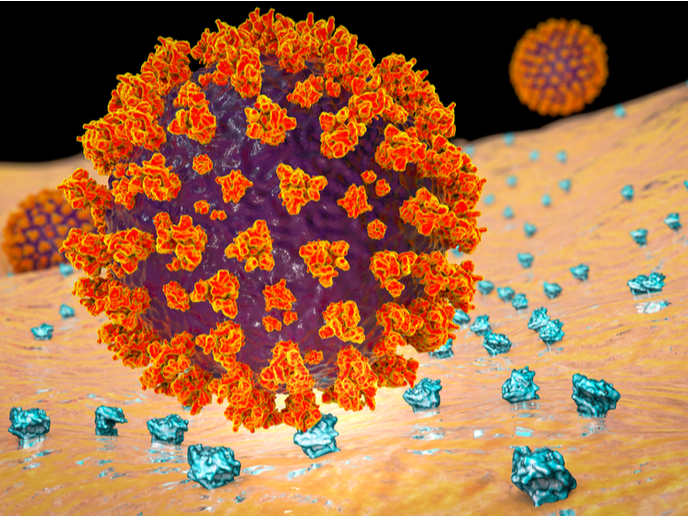Trial drug offers hope for combating the coronavirus pandemic, study shows
As scientists continue working around the clock to tackle the coronavirus pandemic, a group of researchers has found a drug that may block the early stages of COVID-19 in engineered human tissues. Partially supported by two EU-funded projects, REGMAMKID and EPIORGABOLISM, the researchers have published their findings in the journal ‘Cell’. The research provides new insights into key aspects of severe acute respiratory syndrome coronavirus 2 (SARS-CoV-2), the virus that causes COVID-19, and its interactions on a cellular level, including in blood vessels and kidneys. In a news release by Karolinska Institutet, Ali Mirazimi, one of the study’s corresponding authors, says: “We hope that our results can contribute to the development of a novel drug treatment that can help patients with COVID-19.” The scientists “used tissue samples from a patient with COVID-19 to isolate and cultivate SARS-CoV-2,” the news release adds. “In cell cultures, they were able to show how the spike protein in SARS-CoV-2 binds to a cell surface receptor called angiotensin converting enzyme 2 (ACE2) in order to enter our cells. It is the same mechanism that the original SARS-virus from 2003 used to bind to our cells, and which has been described by several of the researchers in previous studies.”
Reduced viral growth
The research team utilised engineered miniature replicas of blood vessels and kidneys, called organoids, developed from human stem cells by applying bioengineering techniques. These organoids helped analyse how SARS-CoV-2 interacts with and infects human cells. In addition, the researchers validated a therapy able to substantially reduce the viral load of COVID-19. They added a genetically modified variant of ACE2 – human recombinant soluble ACE2 called hrsACE2 – to test if the virus can be stopped from infecting the cells. The results show that hrsACE2 reduced viral growth of SARS-CoV-2 by a factor of 1 000-5 000 in cell cultures. “We also show that SARS-CoV-2 can directly infect engineered human blood vessel organoids and human kidney organoids, which can be inhibited by hrsACE2. These data demonstrate that hrsACE2 can significantly block early stages of SARS-CoV-2 infections,” as noted in the journal ‘Cell’. Quoted in the Karolinska Institutet news release, Mirazimi says: “We believe adding this enzyme copy, hrsACE2, lures the virus to attach itself to the copy instead of the actual cells. It distracts the virus from infecting the cells to the same degree and should lead to a reduction in the growth of the virus in the lungs and other organs.” The study was limited to cell cultures and engineered organoids. However, the same drug, called APN01 or hrsACE2, has already been tested against acute lung injury (ALI), acute respiratory distress syndrome (ARDS) and pulmonary arterial hypertension (PAH) in clinical phase I and II studies. The drug candidate “is currently in Phase II development by APEIRON Biologics for the treatment of PAH and ALI/ARDS, which is a significant cause of COVID-19-related mortalities,” as stated in a press release. APN01 has recently received regulatory approvals for the treatment of 200 COVID-19 patients in Denmark, Germany and Austria, according to the same press release. The REGMAMKID (How to regenerate the mammalian kidney) project, which partially supported the COVID-19 study, will end in October 2020. The EPIORGABOLISM (Diabetic nephropathy modelling in hESC-derived 3D kidney organoids) project, which also provided funding for the same study, will run until August 2021. For more information, please see: REGMAMKID project EPIORGABOLISM project
Keywords
REGMAMKID, EPIORGABOLISM, coronavirus, SARS-CoV-2, COVID-19



